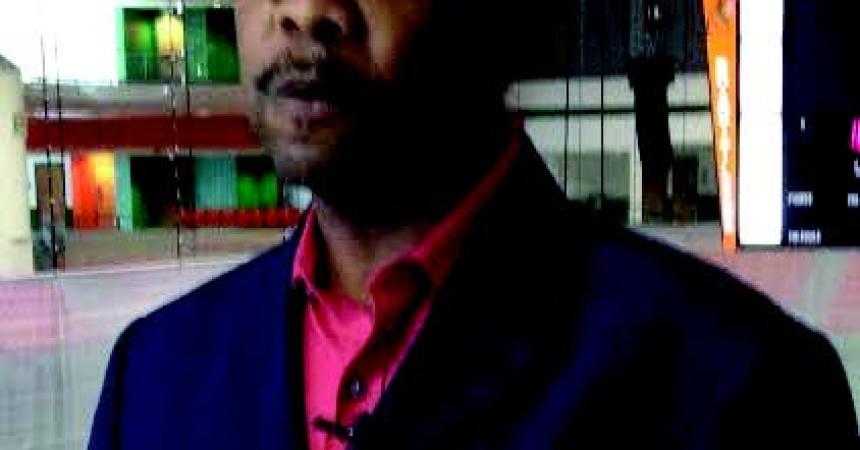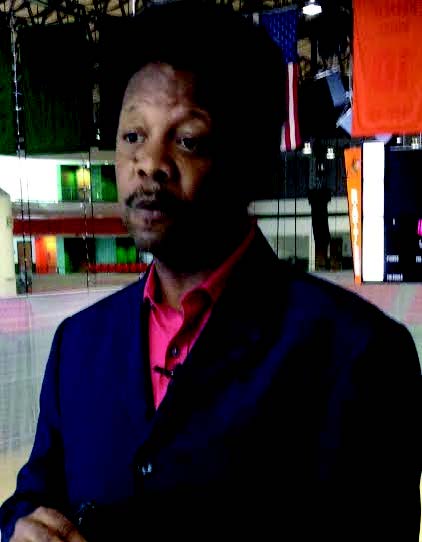
Proctor calls for focus on mental health
By St. Clair Murraine
Outlook staff writer
Leon County Commissioner Bill Proctor showed up at a press conference last week to explain his push for an ordinance that would decriminalize small portions of marijuana.
But before he got through, he found himself centered on one of the country’s most tabooed hot buttons – mental illness and families’ secrecy about the health condition.
Proctor used the recent arrest of his son, Jordan, as a case-in-point, suggesting that mental illness might have led to him being arrested twice. He went as far as to suggest that his son’s actions – being arrested for having 32 grams of marijuana in his possession and an earlier arrest on a robbery charge – could be due to mental instability.
But questions persist whether the commissioner’s intent is to clear his son or make a genuine effort to bring awareness to the causes and affect of mental illness.
He insisted that he, as a public figure, has the platform to begin a much-needed awareness conversation.
“Our culture doesn’t talk about two things; we don’t talk about crime being committed. It’s hard to get people in the Black community to snitch,” Proctor said during an interview with the Outlook. “Secondly, we don’t say somebody has a (mental) problem. I’m trying to initiate a conversation about it.”
Actually, the conversation on mental illness has been ongoing for some time about the impact of the disease.
In this country, 44 million adults and 13.7 million children suffer with some form of mental health disorder, according to a study by the 16th Surgeon General Dr. David Satcher.
“I’m convinced that we can shape a different future for this country as it relates to mental health and as it relates to suicide,” Satcher said in one of his speeches.
Samuel O. Okpaku, chairman and professor in the Department of Psychiatry at Meharry Medical College, took a long, thorough look at global mental health in the book “Essentials of Global Mental Health,” which he edited. One section touched on how neighborhood groups are growing around the world to deal with mental health, similar to what Proctor hopes to establish.
Proctor has scheduled a forum on mental health this week at the Fairgrounds. Several professionals in the mental health field will participate, he said.
“It’s good to sit in the corner and say woe; it’s our family, woe it’s me,” he said. “I’m not going out like that; I’m saying my son’s situation is what it is, but I’m not the only family that has children with a mental disorder.”
Going public should inspire others to do the same, Proctor said.
“I’m saying that if I, as a public figure, can’t get it right, how can other people do it,” he said. “I’m saying; look you all; I’m willing to put all my stuff out there.”
Proctor insisted that he’s not gone public with a family matter to get pity for his son.
“I know my son is sweet,” he said. “He has a good heart. Yes, I do believe that his condition has affected his ability with judgment.”
A day after meeting with the media, Proctor proposed an ordinance intended to stop anyone arrested with 20 grams of marijuana or less from getting more than a citation. Anyone with more than one offense would also be eligible for the citation program.
Proctor pointed to similar decriminalizing programs in at least three counties in the state. Orlando was the latest to propose the program.
“It’s crazy,” Proctor said. “In South Florida it’s already a civil citation, but in North Florida you’re going to jail. The state is divided. It violates the 14th Amendment; equal protection of law.”
His son, who was arrested with 32 grams in his car, would not have been eligible if the program was in place. However, Proctor said his proposal isn’t just about his child. Instead, he would like to see fewer people get into the criminal system.
“I don’t want nobody’s son; certainly not my own, caught by something that I don’t believe warrants being in jail over,” Proctor said. “I’m trying to save careers, high school kids from getting put out of school; expelled.”








